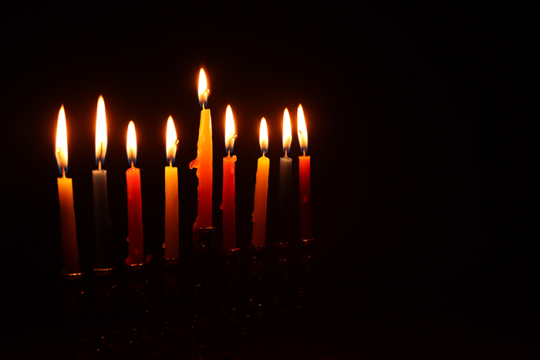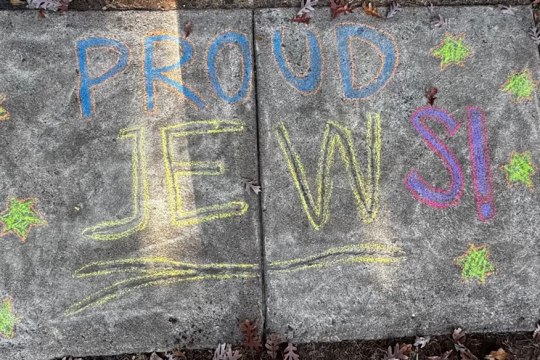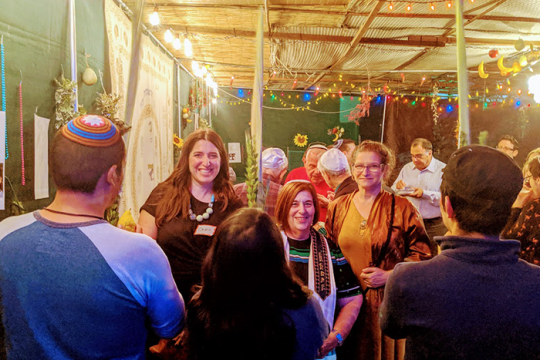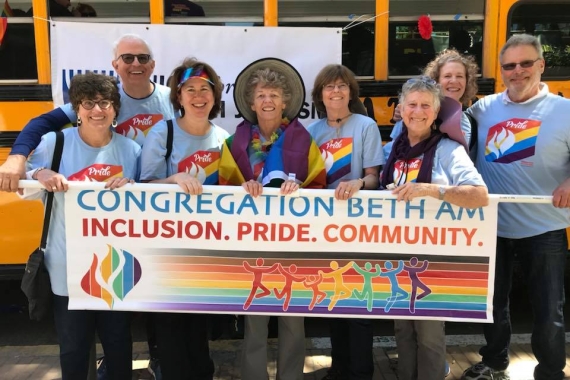Explore Upcoming Jewish Holidays
Why Does the Jewish Calendar Change Every Year?
People often say: "The Jewish holidays are late this year" or "The Jewish holidays are early this year." In fact, the holidays never are early or late; they are always on time, according to the Jewish calendar. Unlike the Gregorian (civil) calendar, which is based on the sun (solar), the Jewish calendar is based primarily on the moon (lunar), with periodic adjustments made to account for the differences between the solar and lunar cycles.
Jewish Holidays Calendar
What's New
Image:

In Search of Belonging in the Darkness, the Twilight, and the Light
The season of Hanukkah is upon us. By this time of year, we have experienced many cycles of darkness, twilight, and light.
Image:

Proud JEWS
Right before Sukkot, I noticed the word "JEW" carved into my sidewalk. I began to grind out the word, but rather decided to replace the space by adding "Proud JEWs" to the sidewalk.
Image:

Building a Sukkah That Stands for Justice
Our Jewish story teaches that our collective safety depends on society protecting the rights of every individual. As we gather in our synagogues, under the canopy of the sukkah, and in early childhood centers, immigrants across the country are facing the threat of their holy spaces and other
Get Jewish Life in Your Life
Subscribe to get inspiring email newsletters.
Find a Congregation
Find connection, learning, and spirituality at a Reform community near you.
Image:


